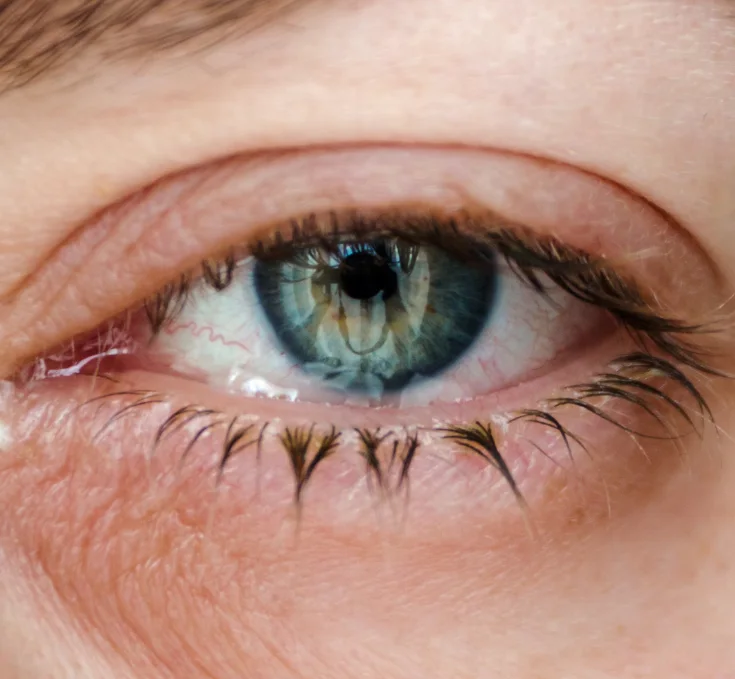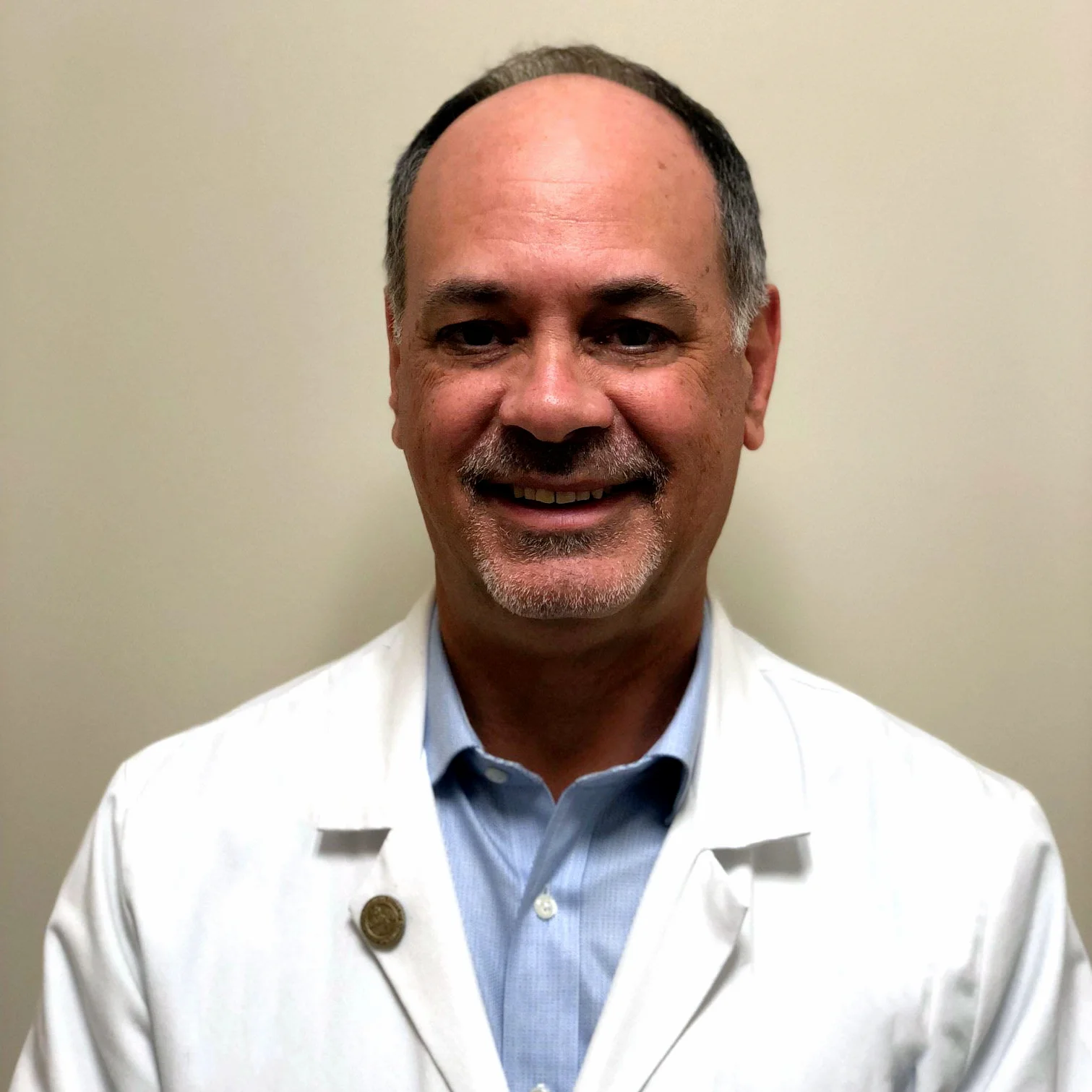Macular Degeneration
Macular degeneration (AMD) is a common eye condition and the leading cause of vision loss in adults over 65.

Macular degeneration affects the macula, the part of the retina responsible for the crisp, detailed vision needed for reading or driving. As we age, the tissue in the eye responsible for central vision slowly begins to deteriorate which can significantly affect a patient’s quality of life.
Types
Macular degeneration can be classified as either wet (neovascular) or dry (non-neovascular). Dry macular degeneration is the more common diagnosis, and is considered to be an early stage of the disease. This type of the disease usually develops as a result of aging and thinning of macular tissues and the depositing of pigment within the macula.
Only about 10% of patients see their condition progress to the more advanced and damaging wet macular degeneration. In wet macular degeneration, new blood vessels develop beneath the retina and cause a leakage of blood and fluid. This leakage can lead to permanent damages in the central vision and the
Symptoms
Patients with macular degeneration may notice gradual changes to their vision, including shadowy areas in the central vision, or fuzzy and distorted vision. These areas grow larger as the disease progresses, and can eventually turn into blind spots. Patients may also have difficulty seeing color and fine details.
If the disease progresses to the wet form, patients may also see straight lines as wavy. With wet macular degeneration, central vision loss can occur rapidly, sometimes in as little as a few days or weeks.
If the disease progresses to the wet form, patients may also see straight lines as wavy. With wet macular degeneration, central vision loss can occur rapidly, sometimes in as little as a few days or weeks.
Your doctor may be able to detect early signs of macular degeneration, before any symptoms occur, through a regular eye exam. Any signs of this condition can be further confirmed by testing your central vision with an Amsler grid test. Regular eye exams are important in detecting macular degeneration and other serious eye conditions as early as possible, so that permanent side effects can be avoided. The Kalt-Goldberg Eye Center has the Optos Optomap, the latest technology in macular imaging, which allows the doctors to take a very detailed picture of the macula and surrounding tissues of the inside of the eye. This gives Drs. Kalt and Katz the abiity to document and verify even the most minimal changes in your eye’s health and to better track the slightest changes from one exam to the next, granting them the opportunity to intervene with treatment at the earliest necessary juncture.
Causes and Risk Factors
Many cases of macular degeneration are a result of aging and the natural deterioration of the eye tissue that is needed for clear vision. This disease can also be related to a genetic factor in patients who have a gene variant known as complement factor H. Nearly half of the blinding cases of macular degeneration are linked to this genetic deficiency.
Macular degeneration is most common in females and whites, and the risk for all patients increases with age. This condition is the leading cause of blindness in the US for patients over the age of 65. Over 14% of adults between the ages of 70 and 79 have been diagnosed with advanced or intermediate age-related macular degeneration.
Other factors that may increase your risk of macular degeneration include:
- Obesity
- Smoking
- Heredity
- High fat diet
- Prolonged sun exposure
- High blood pressure
- Lighter eye color
- Side effects of certain drugs
Patients can minimize their risk of macular degeneration by practicing a healthy, active life and getting regular eye exams. It is important for all patients to exercise regularly, avoid smoking, and eat a balanced diet that includes foods known to preserve vision and prevent eye diseases.
Treatment
While there is no cure for macular degeneration, there are several treatment options available to help patients manage this condition and preserve their vision. The best treatment option for each patient depends on the severity and type of the condition, as well as how much, if any, permanent vision loss has occurred.
Intraocular injections of Avastin, Lucentis and Macugen are often successful in stopping abnormal blood vessel growth in wet macular degeneration. These FDA-approved medications are injected into the vitreous of the eye on a monthly basis to control the damaging effects of wet macular degeneration. Photodynamic therapy is also effective in removing newly developing abnormal blood vessels that are characteristic of wet macular degeneration. Many patients also benefit from vitamin and mineral supplements, which can clear out toxic substances that may build up in advanced cases of this condition.
It is essential for patients with macular degeneration, wet or dry, to seek continuous medical treatment to manage their condition and prevent permanent vision loss from occurring. Our doctors have extensive experience in the treatment of these conditions, and can offer patients the latest, most advanced treatments to help preserve your vision and your overall quality of life.




